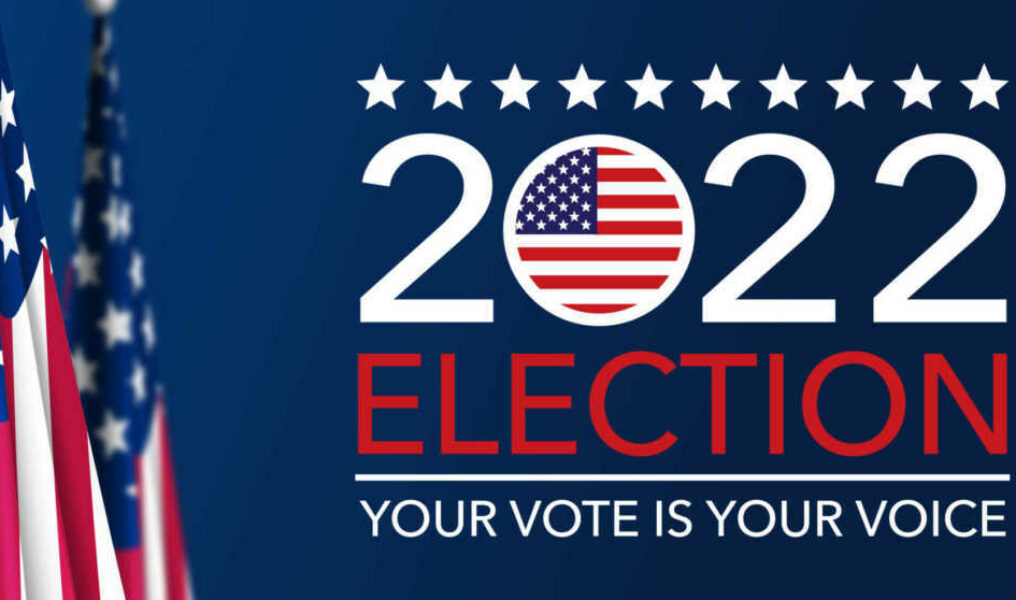Michigan Voters, Take Note: These Three State Ballot Issues Have Significant LGBTQ+ Implications
Before you head to the ballot box, read up on Proposals 1, 2 and 3

There are three statewide proposals on the Nov. 8 ballot in Michigan, and while not explicitly about the LGBTQ+ community, each of them has a connection worth considering.
Proposal 22-1: Voters for Transparency and Term LimitsProposal 1, otherwise known as Voters for Transparency and Term Limits, is a constitutional amendment that seeks to alter the current term limit laws for state legislators elected after 2022, placing a 12-year total limit on state representatives and state senators. Currently, legislators can serve up to six years in the Michigan House and an additional eight years in the Michigan Senate.
The proposal would also require legislators, the governor, lieutenant governor, secretary of state and attorney general to file annual public financial disclosure reports. Those reports, which would begin in 2024, would have to detail all spending on assets, liabilities, income sources, future employment agreements, gifts, travel reimbursements and positions held in organizations except religious, social and political organizations.
The proposal was placed on the ballot in May after the Michigan Legislature voted for a watered-down version that didn’t require thousands of petition signatures.
Of the three proposals, this one has the least obvious impact on the LGBTQ+ community. However, a closer look reveals a fundamental connection.
Michigan’s term limits have resulted in a revolving door legislature in which lobbyists have increased their influence exponentially while the institutional memory of most lawmakers extends less than a decade.
Eric Lupher, president of the Citizens Research Council, told MLive earlier this year that partisanship in Lansing has been one of the primary results of term limits.
Lupher pointed to "the ability to understand the perspectives of people not like you and work to solutions through conversation and negotiation. If there aren’t relationships, that process becomes more and more challenged.”
The outcome has been an indulgence of extreme positions without consequence, whether it be legislation that would bar transgender students from being able to participate in high school sports or rejecting a simple resolution in favor of Pride Month.
While allowing House members to serve a maximum of six terms instead of three and Senators three terms instead of two is a modest improvement, it is progress nonetheless at breaking up the revolving door of far-right partisans with limited incentive for consensus building.
Proposal 22-2: Promote the Vote 2022Known as Promote the Vote 2022, Proposal 2 would implement a series of reforms designed to increase voter access, including mandating nine days of early in-person voting; giving voters a single application to cast their absentee ballot; establishing state-funded absentee ballot drop boxes with postage for absentee ballots; allowing overseas ballots (including from members of the military) to be counted if they are postmarked the day of the election; continuing to allow registered voters without a state ID to sign an affidavit attesting to their identity; ensuring election officials can perform post-election audits; allowing public sources and charities to transparently fund elections; and mandating canvassing boards certify election results based solely on official records of votes cast.
The proposal was placed on the ballot following a ruling in September by the Michigan Supreme Court (MSC) that ordered the Board of State Canvassers to approve it after Republican members of that panel exceeded their statutory authority and voted against it.
It’s no secret that allowing for more people to vote, and making it easier for them to do so, will likely benefit Democratic candidates and causes, which include support for the LGBTQ+ community.
In fact, Michigan's LGBTQ+ legislative caucus is expected to grow to seven members after Nov. 8, the largest it’s ever been. Increasing voting access will only grow that trend.
Proposal 22-3 : Reproductive Freedom for AllProposal 3, aka Reproductive Freedom for All, would amend the state constitution to make reproductive freedom a right, permanently repealing a 1931 law that makes abortion a felony in Michigan.
That law would have taken effect after the U.S. Supreme Court struck down Roe v. Wade in June, overturning the federal right to abortion access that had been the law of the land for almost 50 years. However, a Michigan judge issued a permanent injunction, blocking the state law from being enforced. Regardless, it remains on the books and could be implemented by a higher court unless it is removed.
This was also ordered onto the ballot by the MSC after challengers argued the lack of spacing in the initiative language made it invalid. Supporters successfully argued that the law makes no mention of spacing issues and Republican canvassers had no statutory authority to reject it as such.
It’s also worth noting that the proposal received 753,759 petition signatures, the most in state history.
Of all three statewide proposals, this one has the clearest impact on the LGBTQ+ community because it ostensibly deals with bodily autonomy, a major issue in a time when transphobia is being used as a battering ram by the GOP.
In fact, opponents of Proposal 3 have gone out of their way to try to connect abortion care to “secret treatment of gender confused children that results in hormonal sterilization.”
But specifically as it pertains to abortion, studies have shown that transgender men with a uterus are at a similar risk of unplanned pregnancy as cis women and would similarly benefit from abortion services. This proposal would make that right fundamental to all, regardless of gender identity.
For complete information about issues and candidates that will appear on the Nov. 8 ballot go to the Michigan Voter Information Center at mvic.sos.state.mi.us/PublicBallot/Index. Early voting is happening now.








